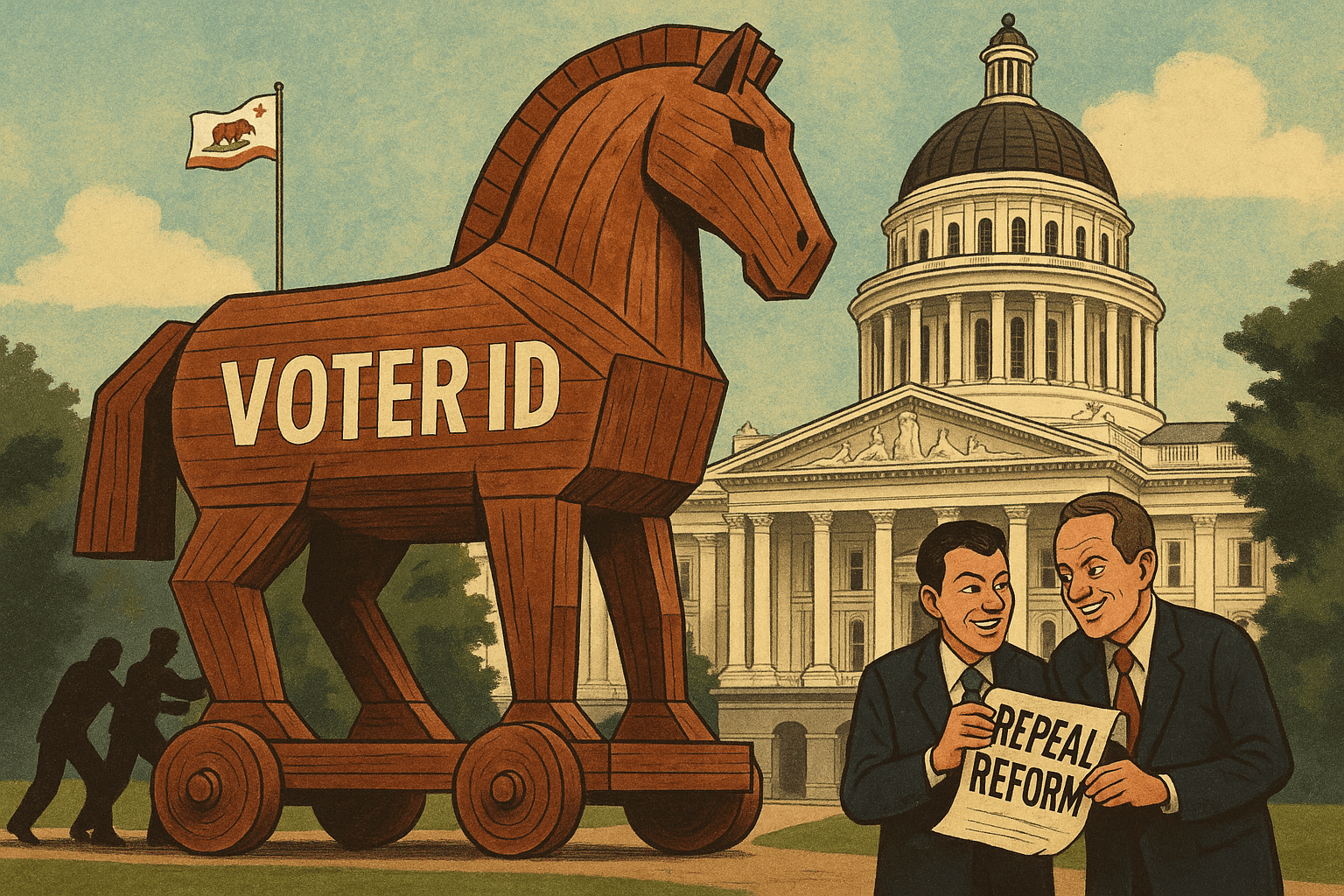A Partisan Fight Heats Up: Voter ID Initiative Pits Maine’s Democrat Secretary of State Against a Powerful GOP Super PAC

AUGUSTA, MAINE —A super PAC allied with the Republican Party is challenging the official language of a voter ID ballot question set to appear on Maine’s November 2025 ballot.
On May 12, the group sponsoring the citizen’s initiative, Dinner Table Action/Voter ID for ME, filed a formal complaint in Cumberland County Superior Court against Maine Secretary of State Shenna Bellows, a Democrat, the author of the ballot question. The group claims Bellows has "burie(d) (the initiative’s) core intent behind a string of technical and inflammatory clauses."
The Complaint alleges that the question as written “fails to meet the constitutional and statutory standards of clarity, accuracy, and impartiality,” and argues it misrepresents the initiative by implying it targets elderly voters and people with disabilities. The group also alleges that the secretary of state used “vague and confusing” wording and included “legal jargon” that was not part of the original proposal.
The title of the proposed citizen-initiated law is “An Act to Require an Individual to Present Photographic Identification for the Purpose of Voting.” Section 1 of the proposed law states that “a voter who wishes to vote must present photographic identification and state the voter's name and residence address to an election clerk, who shall announce the name in a loud, clear voice. If the voter's stated residence address is different from the residence address listed on the incoming voting list, the voter must be directed to complete an updated voter registration application before voting.”
The initiative would also overhaul other aspects of Maine’s election laws. It would limit the number of drop boxes at each municipality to one, it would prevent absentee ballot requests by phone or through a family member, and it would shorten the period for early voting by two days.
On May 6, Secretary Bellows released the finalized language which reads:
“Do you want to change Maine election laws to eliminate two days of absentee voting, prohibit requests for absentee ballots by phone or family members, end ongoing absentee voter status for seniors and people with disabilities, ban prepaid postage on absentee ballot return envelopes, limit the number of drop boxes, require voters to show certain photo ID before voting, and make other changes to our elections?”
The plaintiffs are expected to argue in court that the bill's primary purpose, requiring photo identification at the polls, is completely obscured by the secretary’s phrasing. The plaintiffs also allege in their complaint that the question's wording "departs from historical precedent by being the longest ballot question in Maine's history - more than 30% longer than the text of past initiatives.”
According to the Portland Press Herald, the campaign to pass the Voter ID measure has been fueled by a $500,000 donation from a national group, the Republican State Leadership Committee.
Dinner Table Action is one of two super PACs currently challenging a Maine law, passed via ballot measure with the support of 74% of voters in November 2024, to limit contributions to political action committees (PACs), effectively ending super PACs in Maine.
Bellows previously described Dinner Table’s Voter ID proposal as a "wolf in sheep's clothing." She is Maine’s 50th secretary of state and first female secretary of state, and is currently a declared candidate for governor in the state’s ranked choice voting primary next June.
In 2023, Bellows achieved nationwide attention when she ruled that Donald Trump was ineligible to appear on Maine’s 2024 presidential primary ballot under Section 3 of the 14th Amendment.
As was recently reported by Independent Voter News, 38 states allow voters to elect their secretary of state, giving the public direct control over this key administrative role. But in Maine, Tennessee, and New Hampshire, the secretary of state is selected solely by the legislature, bypassing both the governor and the voters.
These are the only three states where the chief election officer is installed without a public vote or any executive sign-off.
When announcing the final wording for the Voter ID ballot question, Bellows told the Maine Morning Star that “the proposed measure has 28 sections, and Maine law requires that the question be presented in a clear, concise, and direct manner…318 Mainers spoke up to share their thoughts and suggestions on the initial draft of the phrasing of the question. Given that feedback, the final question describes six changes to the voting process proposed by the underlying legislation.”
In a statement to News Radio WGAN, Bellows said the language in the question accurately reflects what’s in the proposed law, saying: “I challenge Dinner Table Action to name one provision in the question that isn’t in the law that they have proposed. If they didn’t want the provisions in the question, they shouldn’t have put them in the proposed law.”
The Court has 40 days to resolve the issues raised by the plaintiffs.
The initiative was initially presented to the Legislature, but after lawmakers declined to enact it before adjourning, the proposal was set to appear on the statewide ballot this November. If voters approve it, the law will take effect on January 1, 2026.







